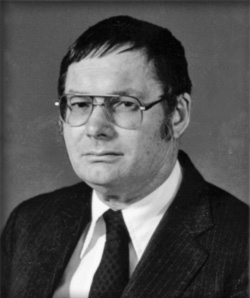Join us
FREE PUBLIC symposium
When?
24 April–25 April, 2014
8:00 am–5:30 pm
Reception April 24, 6-9pm
Where?
Fishery Sciences Auditorium
FSH 102
1122 NE Boat Street
University of Washington
Parking info
For more information:
David A. Armstrong
206-617-7003
davearm@uw.edu
Dave McGowan
772-349-6889
mcgowand@uw.edu
Sponsors
Funding for the Symposium is generously provided by Tanya Bevan, friends of Don Bevan, the UW School of Aquatic and Fishery Sciences, Alaska Fisheries Science Center, Northwest Fisheries Science Center, Washington Sea Grant, Marine Conservation Alliance, At Sea Processors Association, North Pacific Fishery Management Counci, Environmental Defense Fund, Packard Foundation, and Bering Sea Fisheries Research Foundation
Don Bevan
 The Bevan Series honors Dr. Donald E. Bevan, former Director of the School of Fisheries, Dean of the College of Fisheries, and Associate Dean of the College of Ocean and Fishery Sciences (COFS). Don’s academic career spanned nearly fifty years (1940–1988) at the University of Washington and concentrated on proactive fisheries research, management, and conservation.
The Bevan Series honors Dr. Donald E. Bevan, former Director of the School of Fisheries, Dean of the College of Fisheries, and Associate Dean of the College of Ocean and Fishery Sciences (COFS). Don’s academic career spanned nearly fifty years (1940–1988) at the University of Washington and concentrated on proactive fisheries research, management, and conservation.
During his career, Don worked tirelessly to promote responsible fisheries management, particularly with respect to salmon in the Pacific Northwest. In 1947, he was one of several seminal scientists involved in the creation of the Fisheries Research Institute (FRI), a partnership between the University of Washington and the Alaska salmon industry to improve the scientific basis for regulating Alaskan salmon fisheries. This approach to science-based fisheries management would shape his career. Don’s doctoral dissertation, completed in 1959, pioneered the use of tagging to estimate the size of migrating sockeye salmon populations in Alaskan coastal waters. These studies shed light on the natural history of the Kodiak sockeye stocks, indicating the extent to which individual stocks mixed in the coastal environment. At the same time, Don’s research provided solid evidence for the use of tagging as a practical, proactive means of estimating run size of a commercial species.
A pioneer in bringing science and management together, Don believed that "good science is always good politics in the long run." With respect to salmon, this meant adopting science-based recovery measures, instituting careful monitoring and evaluation procedures, adaptive management, and most especially consensus decision-making. Later in his career, Don was perhaps best known for his role as Chair of the Snake River Salmon Recovery Team and his efforts to bring science to bear in the restoration of Columbia River salmon stocks.
Don was also keenly interested in economic, political, and legal aspects of fisheries management, and he used his talents to fight for science-based fishery management and policies in the best interest of the resource and the fishers. Equally at home in the laboratory, the field, and the Congressional hearing room, Don had a tremendous impact on the enactment and reauthorization of the Magnuson Fishery Conservation and Management Act, the primary legislation governing the sustainable use of our nation’s marine fisheries.
Always an advocate of strong science to support stock management decisions, Don understood the importance of linking policy to science, and the need to be proficient in both. He served on the three main bodies governing fisheries management policy for North Pacific waters: the North Pacific Fishery Management Council, as well as its Advisory Panel, and Scientific and Statistical Committee. Many of his original ideas and contributions are still part of the process and terminology in use today.
As a leader in fisheries management, Don was well known for his annual efforts to assemble managers, industry, and academia to act as a unified voice calling for federal recommendations and budget initiatives needed to sustain West Coast fisheries. Through his management, economic, and legal interests in coastal fisheries, he helped found the Institute for Marine Studies at the University of Washington, now the School of Marine Affairs.
Finally, Don looked beyond the local environment to distant fisheries and fishery science in an effort to promote integration of international fisheries science and management. During his career, he made countless trips to Russia to secure and promote cooperation between U.S. and Russian fisheries. He even met his second wife, fisheries scientist Tanya Potapova, in 1959, when he was a visiting scientist at Moscow State University. They married in 1971.
To the School of Aquatic and Fishery Sciences (SAFS), Don represents a legacy of salmon biology, science-based fisheries management, and international interaction. To the College of Ocean Fishery Sciences, Don left a legacy of interdisciplinary vision, which we continue today. The Bevan Series seeks to continue these legacies by focusing on fisheries management and conservation issues the world faces today. Rather than point accusing fingers, Bevan Series speakers direct their efforts towards finding solutions to the complex problems sustainable fisheries represent. "Sustainability" is an immense challenge that Don would well appreciate as it hinges on the combined uncertainties of natural variation and the means to predict it, as well as human harvest of stocks according to myriad schemes of allocation derived from numerous approaches to estimation. We know that Don, were he alive today, would be at the forefront of these efforts, on behalf of SAFS, the University of Washington, and the fisheries he loved.
To request disability accommodations, contact the University of Washington Disability Services Office at least 10 days in advance of the event: 206-543-6450; 206-685-7264 (fax); 206-543-6452 (TTY); or dso@u.washington.edu (email)
Photos, l to r: brytta/iStock/Thinkstock, University of Washington Archives, US Congress, Michael Brake/iStock/Thinkstock.